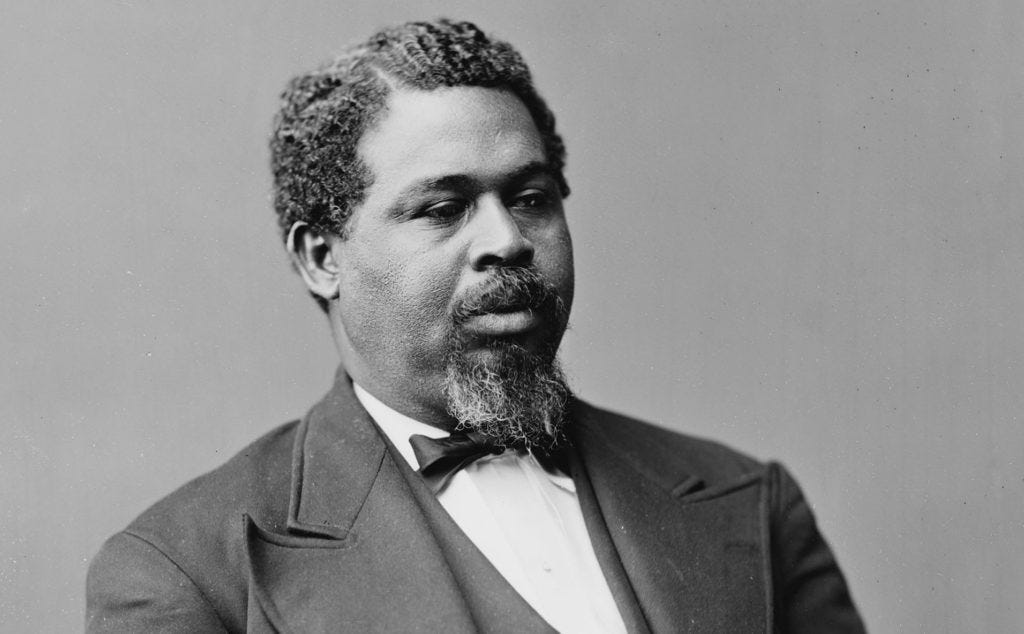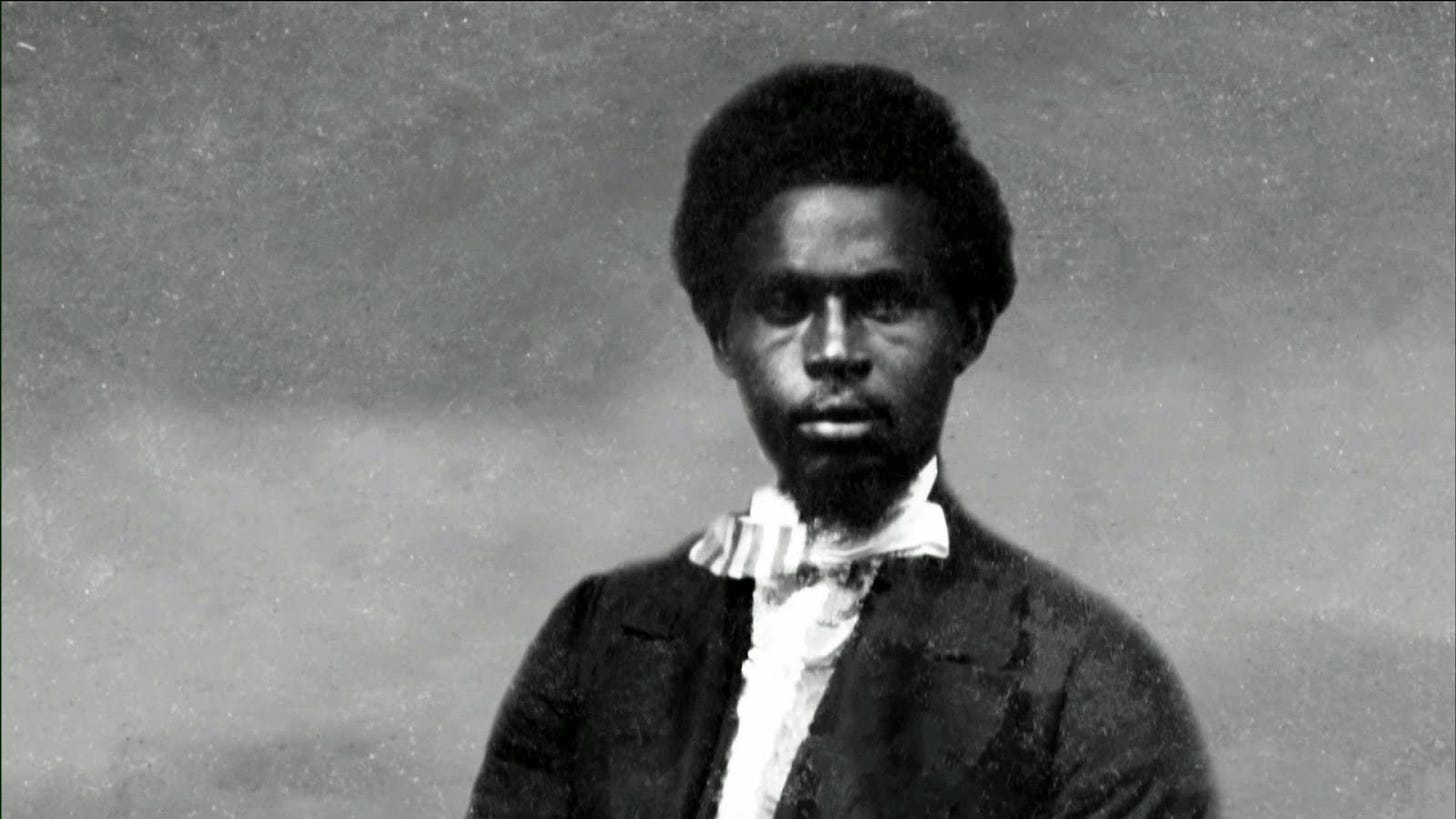Robert Smalls: A Badass American

Over a campfire this weekend, my fiance told me the story of Robert Smalls. If you’ve never heard his story, prepare to have your mind blown...
Robert Smalls was born a slave in South Carolina in 1839. When he died 75 years later, he owned the home where he was born. At one point, he even allowed his former master’s wife to move back in as his tenant.
Here's an insanely short summary of the life of a larger-than-life American.
Robert Smalls outsmarts the Confederate Navy
When Robert Smalls was in his early 20’s, the Civil War had just broken out. He was assigned to work on a confederate ship, the USS Planter.
The Planter was stationed in Charleston, just a few miles south from a blockade of Union ships.
To slaves like Robert Smalls, Henry Louis Gates, Jr. wrote, the Union blockade wasn’t a threat but rather “a tantalizing promise of freedom.”
If Smalls could get to the Union ships, he knew he stood a chance at gaining his freedom.
One day in May 1862, Smalls decided that he would steal the Planter from the Confederate navy and head north to freedom or die trying.
An insanely dangerous gamble
Late one night, he shared his plan with some of the other slaves on board while the white crew slept ashore. Within just a few hours, they decided to make their escape.
Smalls put on the white captain’s straw hat, ordered the crew to hoist Confederate and South Carolina flags, and left port — a black captain with an all-black crew, steering a Confederate naval ship towards freedom.
Smalls played the part of a white naval captain brilliantly and tricked a series of Confederate checkpoints on their way North.
From Henry Louis Gates, Jr.:
Smalls blows the ship’s whistle while passing Confederate Forts Johnson and, at 4:15 a.m., Fort Sumter, “as cooly as if General Ripley was on board.” Smalls not only knows all the right Navy signals to flash; he even folds his arms like Capt. Rylea, so that in the shadows of dawn, he passes convincingly for white.
The Union navy nearly kills Small and his crew
By sunrise, Smalls and his crew had nearly reached the Union blockade. Freedom was mere yards away when it struck him:
Oh, s***. I just sailed a Confederate ship directly into enemy territory. These Union ships are going to blow us to bits.
His wife, who he had snuck on board, came up with a brilliant plan...
She frantically scrubbed some sheets with soap until they took on a white-ish color and then hoisted the improvised surrender flags within seconds of the Union opening fire and possibly killing everybody on board.
From an eyewitness account that day:
Just as No. 3 port gun was being elevated, someone cried out, ‘I see something that looks like a white flag’...
When [the crew of the Planter] discovered that we would not fire on them, there was a rush of contrabands out on her deck, some dancing, some singing, whistling, jumping… [one of the] men stepped forward, and taking off his hat, shouted, ‘Good morning, sir! I’ve brought you some of the old United States guns, sir!’
From slave to naval officer to U.S. congressman
Not long after the surrender of the ship, the Union Navy paid Smalls and his crew half of its appraised value -- around $40,000 in today’s dollars.
The naval officers who got to know Smalls described him as “superior to any who have come into our lines — intelligent as many of them have been.”
The Navy appointed him captain of the Planter, where he fought the Confederacy for years. Smalls even helped convince Lincoln's Secretary of War Edwin Stanton to let black Americans fight for the Union.
Following the war, Smalls bought his old master’s home in South Carolina. He launched a series of business ventures, including a small railroad company and a local newspaper.
He then turned his energy towards politics, eventually becoming a state senator and a U.S. Congressman.
This quote from an 1895 speech Smalls gave summarizes the central theme in his life's work:
My race needs no special defense, for the past history of them in this country proves them to be the equal of any people anywhere. All they need is an equal chance in the battle of life.
In Conclusion
I'm embarrassed I didn't know about Robert Smalls until today.
He is as pure an American hero as any other towering figure from U.S. history.
I can't help but wonder, earnestly, where is his statue?



